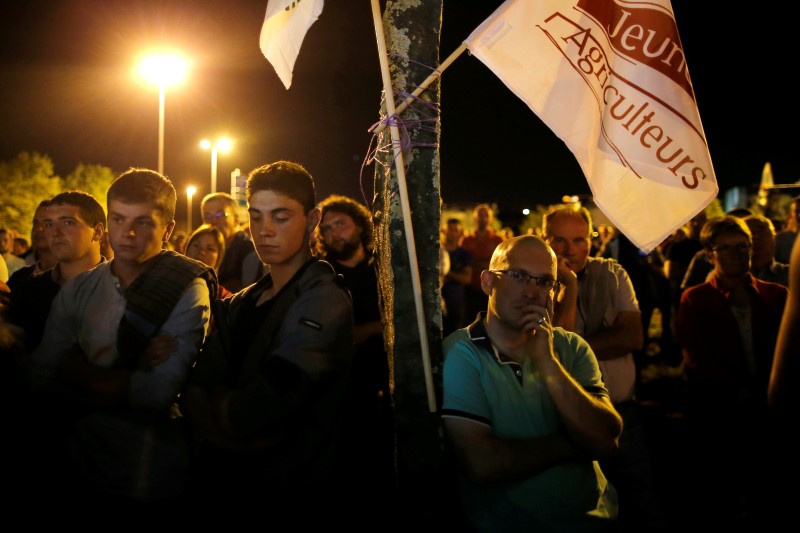PARIS (Reuters) - Europe's largest dairy producer, Lactalis said it was ready to renegotiate milk prices paid to producers after some 400 farmers gathered overnight in front of the company's headquarters in northwestern France to request higher prices.
European milk farmers have been struggling with a slump in prices fuelled by the ending of European Union quotas last year, a Russian import ban on Western food products and weak Chinese dairy imports.
Unions say the price of 257 euros per 1,000 litres of milk currently paid by the family-owned group to French producers is well below their costs and between 10 and 30 euros below the price paid by competitors such as Danone, Sodiaal and Bel.
Lactalis' brands include Président, Bridel, Galbani and Lactel producing butter, milk and cheese.
"The group is ready to-reopen talks," Lactalis spokesman Michel Nalet told Europe 1 radio. "We never closed our door."
He did not detail any potential price change and declined to say when a meeting could take place with farm unions.
Nalet stressed that the group faced strong competition within the European Union where prices have fallen more steeply in the past year than in France.
In June, raw milk prices paid to producers stood at 27.70 euros per 100 kilograms in France, compared to 23.22 euros/100 kg in top producer Germany, 25.12 euros/100 kg in the UK and 25.00 euros/100 kg in the Netherlands, European Commission data showed.
Some 200 farmers, mainly from regional branches of France's largest farm union FNSEA, were still protesting in front of Lactalis' headquarters in Laval on Tuesday morning, unions said.
Agriculture Minister Stephane Le Foll on Monday called for a dialogue on milk prices, adding that the government was ready to mediate to help resolve the situation.
Le Foll said he would put forward "in the coming days" a wider plan on the implementation of EU measures to limit milk output, which would also tackle price crises in the livestock and grain sectors.
The European Commission, the EU executive, said in July it would grant an additional 500 million euros ($567 million) to struggling farmers, including subsidies to reduce milk output.
It also granted a package of 500 million euros in September last year, targeting mainly cash-flow difficulties and market stabilisation.
